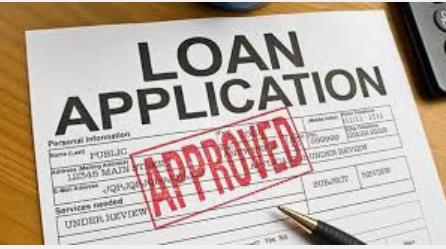The phrase “small business loans bad credit” strikes a chord with a plethora of ambitious entrepreneurs yearning to make their mark in the business world. Startups with less-than-perfect credit scores often face numerous challenges when seeking initial funding. However, contrary to popular belief, a low credit score does not necessarily equate to a dead end for startup financing.

It’s important to understand that lenders are fundamentally risk assessors. Exploring the intricacies of business loans for startups with bad credit can sometimes feel like untangling a complex web. Understanding various factors, such as how lenders assess risk and the pathways to capital, is essential. Similarly, when navigating loan interest rates successfully, staying informed of current SBA loan interest rates and options offers an advantage in securing better terms.
They aim to lend money to entities that are likely to pay back in full and on time. However, a bad credit score is not the only factor they consider. This article will break down some of the alternative pathways that can lead to securing a business loan even with a bad credit history.
The Perceived Risk
Financial perception matters. Small business loans bad credit don’t always indicate high risk. Various elements can help convince lenders to provide small business loans even with bad credit. Lenders may consider the nature of your business, your cash flow, revenue projections, collateral, and even your business plan. Thus, a well-articulated business plan can help to offset the disadvantage of a poor credit score.
Alternatives to Traditional Loans
In the modern lending landscape, there are numerous alternatives to conventional loans that cater specifically to startups with bad credit. These include:
- Merchant Cash Advances (MCAs): MCAs offer a cash advance in return for a percentage of future credit and debit card sales. MCAs can be expensive but can provide quick funding. To mitigate potential financial strain, consulting with a merchant cash advance attorney in Florida, for example, can be crucial for understanding the legal implications and structuring a favorable agreement.
- Invoice Financing: This is a method whereby businesses sell their outstanding invoices to a lender in exchange for a cash advance.
- Crowdfunding Platforms: Kickstarter and Indiegogo let entrepreneurs raise small sums from many individuals.
- Business Credit Cards: These can be used to fund some startup costs and can help build business credit, which could make future borrowing easier.
The Relationship Between Business and Personal Credit
An often overlooked question is: Does business credit affect personal credit? The answer can be nuanced. When starting out, your personal and business credit may be intertwined, especially if you use personal funds, credit cards, or home equity loans.
However, as your business matures, it should establish its own credit profile separate from your personal credit. This can happen as you start using business credit cards, open a business bank account, or secure loans under the business’s name.
However, your business credit may affect your personal credit. For instance, if you submit your personal guarantee for a company loan, you take on the personal responsibility for repaying the loan’s balance. If your firm cannot pay, it may hurt your credit.
Final Thoughts
If you have bad credit, funding your small business may be tough, but not impossible. Entrepreneurs may manage the complexity of the financial environment successfully by investigating alternate ways of funding, presenting a sound business plan, and gaining a grasp of how personal credit and business credit interact with one another. The route to obtaining finance for new businesses is not always straightforward, but if it is traveled well, it may lead to some very exciting locations.



